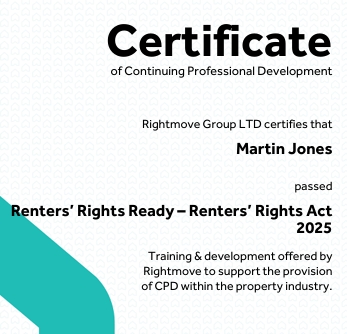Considering becoming a landlord but you are unsure where to start?
- Martin Jones

- Feb 5, 2024
- 4 min read

In this blog, Next Move Homes Norfolk summaries the process of becoming a landlord. Landlords have to maintain their properties, collect rent from tenants, and resolve any disputes that might occur between them. Before starting a new business venture, it is important to understand the process as well as the challenges that come with it.
Understand how much you can borrow?
You need to first make sure that you have the finances to support the purchase and maintain the property. This is more important if you are not going to be living in it yourself and will be relying on rental income to pay any loans on the property. You must also ensure enough funds are set aside for any repairs, maintenance costs or paying in financial cost when the property is vacant.
Find a property that is a suitable investment.
One of the very first steps in becoming a landlord is finding the ‘perfect’ property to rent When looking for properties, explore areas that have a high demand and look at properties have been well maintained over time. We would recommend chatting to a couple of local Norfolk agents in the area and ask their advice on what areas tenants are searching for and what type of properties achieve a good return on your investment.
View a number of properties that meet your requirements
When looking at a property to rent out its worth remembering you are looking for an investment, not a property you plan to make your home. When looking at an investment, pay particular attention to any potential maintenance issues and ensure you factor in these costs within any offer you intend to make. These include high maintenance items such as windows, doors and boilers.
Choosing a lettings agent and advertising your property.
Before choosing a letting agent, its worth considering as a landlord how much involvement do you personally want in the property? Letting agents offer services from tenant find only: where they will advertise your property, find the tenant and oversee the initial paperwork then after this you are fully responsible for your property. Or you can choose a fully managed service where there will be very minimal involvement for you once the tenant moves in.
Before the property is advertised ensure both you and the agent agree how the property is going to be photographed and how the property is being described. This will ensure you attract the right type of tenants for your property.
Choose potential tenants carefully.
One of the most important steps in becoming a landlord is to find a suitable tenant. While it might seem like an easy task, finding the right person can be difficult. You'll want to make sure they have good credit score, good employment references and references from previous landlords. You'll also want to make sure they will look after your property and take good care of it. Once you have chosen your tenant, before paying out for references its normal practice to ask for 1 weeks holding deposit (This is normally taken off the first months rent)
Prepare tenancy agreement and collect a deposit and first month’s rent.
One of the last steps is to collect a deposit and first month’s rent. The deposit protects you from tenants who may cause damage or fail to pay rent. The amount of deposit is usually equal to one month’s rent or 5 weeks rent, but can be higher. The deposit must held within one of the government regulated schemes and proof of where this is held must be given to the tenants within 30 days of moving in.
Prepare your property ready for tenants to move into.
The relationship you have with your tenant starts the day your tenants move into your home. Ensure that you have an inventory prepared and you both agree how the property is handed over. If there are appliances in the property its worth ensuring the tenants have access to the instruction manual and understand how appliances such as the boiler and hot water operate. There is a legal requirement to ensure either on the first day or before moving in the tenants receives the following information.
*How to rent guide (Available from HMRC's website for the most up to date version)
*Signed copy of the inventory report.
*Details of where the deposit is registered.
*Copy of EPC (Energy performance certificate)
*Copy of EICR report (Electric installation certificate report)
*Copy of Gas safety certificate (If there is gas to the property) The process of becoming a landlord is fairly straightforward, if you know where to start! There's also plenty of advice and support out there to help you along the way. Becoming a successful landlord can require a lot of work and responsibility but in the end, your hard work will be worth it. By following the items we've covered here, you'll be well on your way to being a successful and responsible landlord.
If you want any further information about becoming a landlord or have any questions, please contact Next Move Homes Norfolk on 01953 550317 or 01603 536719




Comments